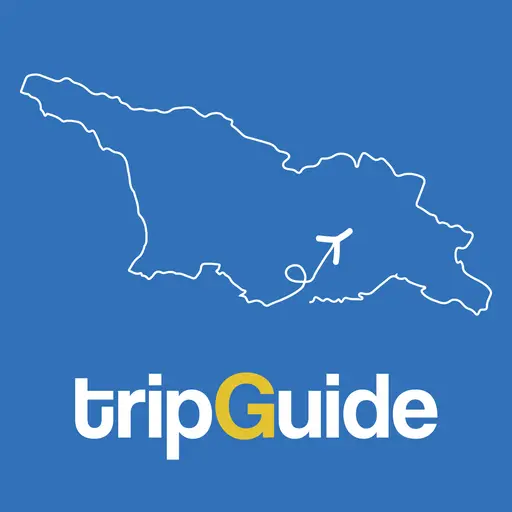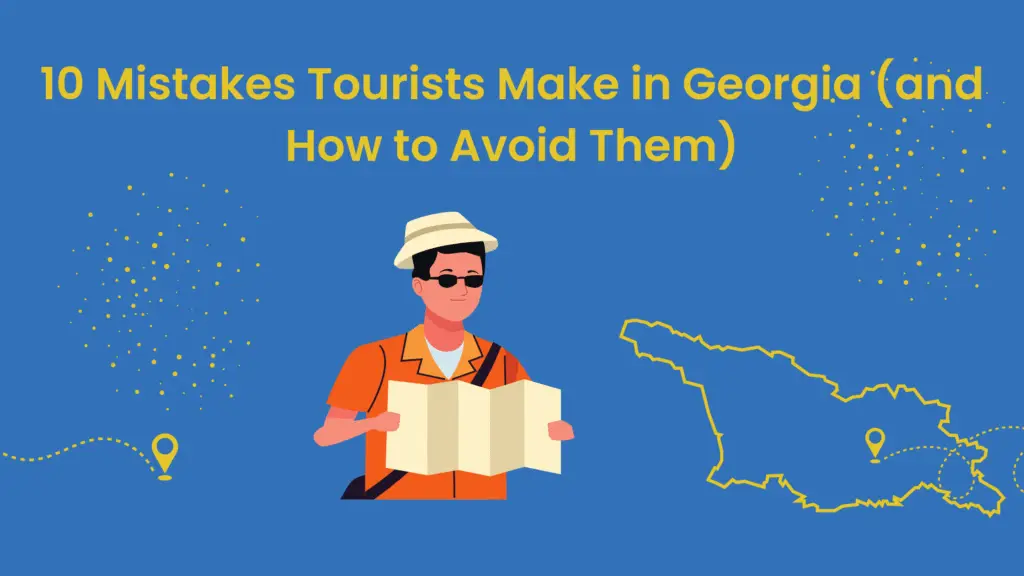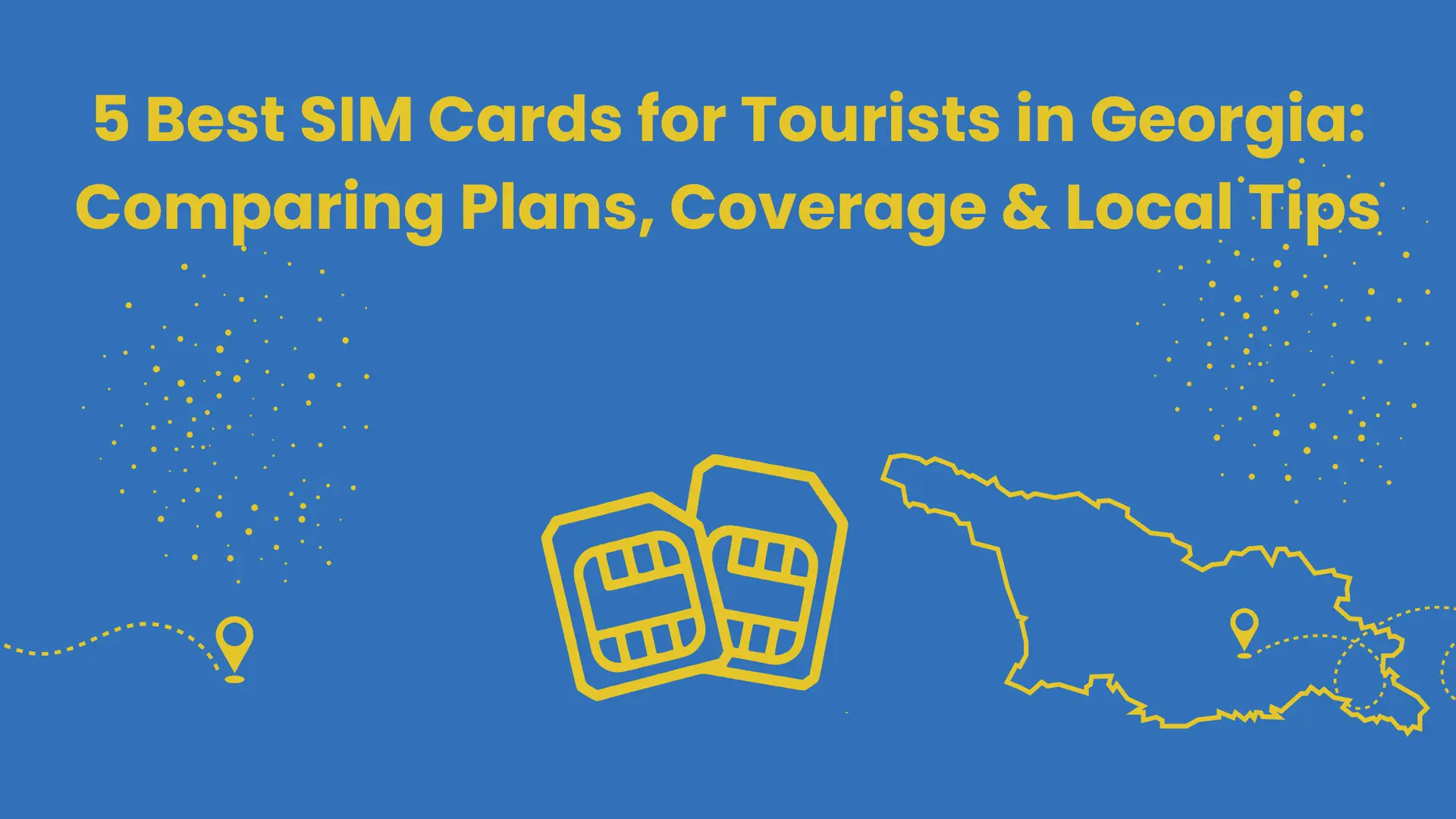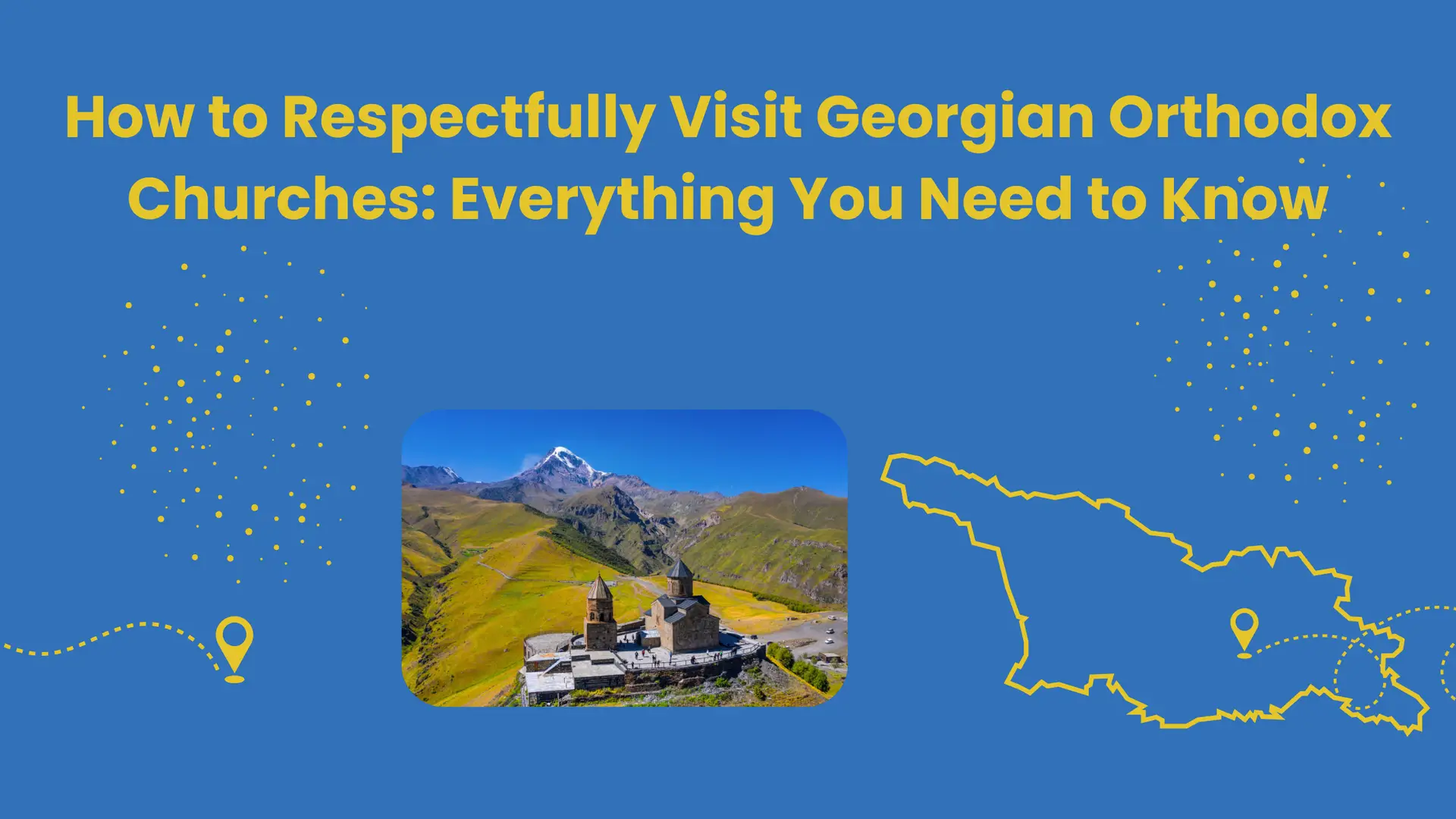Georgia’s breathtaking landscapes, rich traditions, and legendary hospitality make it a jewel of the Caucasus—but even seasoned travelers can stumble into common pitfalls. As locals who’ve guided countless visitors, we’ve collected these insights to help you experience the authentic Georgia that tourists often miss.
1. Relying on TripAdvisor for Restaurant Recommendations
Why it’s a mistake: Those picture-perfect restaurants with English menus and glowing TripAdvisor reviews? They’re often designed specifically for tourists, not locals. Many establishments in Old Tbilisi have mastered the art of appealing to foreign travelers while serving mediocre food at inflated prices.
How to eat like a local:
- Check our handpicked list of local favorites that deliver authentic Georgian cuisine (see our dining guide for the complete list)
- Venture to residential neighborhoods like Vake or Saburtalo where family-run restaurants serve genuine home cooking
- Visit the Deserters Bazaar (Dezertirebis Bazari) for fresh produce and authentic food stalls
- Ask your accommodation host for recommendations—Georgians take immense pride in their cuisine and love sharing their favorite spots
- Try the basement restaurants (often unmarked) in residential buildings—these “underground” spots often serve the most authentic khinkali dumplings at half the tourist price
Local insight: In truly authentic restaurants, you’ll notice Georgians spending hours over a meal, with multiple toasts and singing often breaking out spontaneously—something you rarely see in tourist-oriented establishments.
2. Overpaying for Taxis
Why it’s a mistake: While Georgia has introduced regulations for taxis, many drivers still charge tourists significantly more than locals. What should be a 5-7 GEL ride can suddenly cost 25 GEL when drivers spot foreign visitors.
How to get around affordably:
- Download the Bolt app before arrival—it works throughout major Georgian cities with fixed, fair prices
- Look for official taxis with company logos and meters (required by law in Tbilisi, though enforcement varies)
- Always confirm the fare before entering any taxi without a meter
- Consider the metro in Tbilisi (0.5 GEL per journey)—it’s clean, efficient, and connects major areas
- For intercity travel, marshrutkas (minibuses) offer the most affordable option, departing regularly from designated stations
Local insight: While Tbilisi has implemented taxi regulations requiring white cars with company logos, many unregistered taxis still operate. For peace of mind, stick with app-based services where the price is agreed upon before you start your journey.
3. Never Venturing Beyond Rustaveli Avenue
Why it’s a mistake: Rustaveli Avenue and Freedom Square are undeniably beautiful, but they represent just a fraction of what Georgia offers. Staying exclusively in these tourist zones means missing the country’s soul.
Where to explore instead:
- In Tbilisi: Wander through the hidden courtyards of Sololaki, discover the artistic cafés in Plekhanov, or explore the authentic neighborhood life in Chugureti
- Day trips: Visit Mtskheta (the ancient capital) just 20 minutes away, or the cave monasteries of Davit Gareja
- Regional gems:
- Kakheti: Georgia’s wine region with fortress-towns like Sighnaghi and traditional wineries
- Kazbegi: Witness the iconic Gergeti Trinity Church against the backdrop of Mount Mkinvartsveri (Mount Kazbek), Europe’s fifth-highest mountain at 5,047 meters
- Svaneti: Explore the UNESCO-protected medieval towers of Mestia and Ushguli against stunning alpine mountains
- Adjara highlands: Green mountains and traditional wooden architecture just hours from Batumi
- Racha: Remote mountains with pristine forests and authentic village life
- Borjomi: Mineral springs and dense forests ideal for hiking
Local insight: Each Georgian region has distinct architecture, cuisine, and even dialect. Visiting just one area gives you only a glimpse of Georgia’s remarkable diversity.
4. Disrespecting Local Customs and Dress Codes
Why it’s a mistake: Georgia’s Orthodox Christian traditions are deeply woven into daily life, and inappropriate attire at religious sites often leads to uncomfortable situations.
A real example: During my visit to St. Nino’s Church in Bodbe Monastery near Sighnaghi, I witnessed a tense confrontation between a tourist and a nun. The visitor was wearing shorts and a sleeveless top, appropriate for the summer heat but completely inappropriate for the sacred site. Despite signs at the entrance indicating dress requirements, the tourist argued that her clothing should be acceptable. The nun firmly but respectfully explained that the monastery’s dress code honors centuries of tradition and the sacred nature of the space. The tourist eventually had to return to her car for more appropriate clothing before being allowed to enter.
How to show respect:
- Women should bring a headscarf and skirt (or pants) that cover knees when visiting churches and monasteries
- Men should wear pants (not shorts) and remove hats when entering religious buildings
- Some major monasteries provide wrap skirts at entrances, but smaller churches won’t have these
- Photography may be restricted inside churches—always look for signs or ask permission
- During church services, remain quiet and stand toward the back if you’re observing
- Remove sunglasses when speaking with elderly Georgians as a sign of respect
Local insight: Many Georgian women carry a small scarf in their bag specifically for unexpected church visits. This simple preparation shows cultural awareness and prevents awkward situations.
5. Expecting Everyone to Speak English
Why it’s a mistake: While younger Georgians in Tbilisi often speak excellent English, the language barrier becomes significant outside tourist zones. In rural areas, where some of Georgia’s most authentic experiences await, communication can be challenging.
How to overcome language barriers:
- Learn these essential Georgian phrases:
- გამარჯობა (gamarjoba) – Hello
- გმადლობთ (gmadlobt) – Thank you
- გაგიმარჯოს! (gaumarjos!) – Cheers!
- კი/არა (ki/ara) – Yes/No
- ბოდიში (bodishi) – Sorry/Excuse me
- Download Google Translate with the Georgian language pack for offline use
- In rural areas, Russian often serves as a second language among older generations
- Use simple gestures and speak slowly rather than increasing volume
- Learn to recognize Georgian letters on signs and menus—even basic familiarity helps tremendously
Local insight: In regions like Svaneti, Racha, or rural Kakheti, English proficiency drops significantly. Having a translation app ready before your journey will save considerable frustration when trying to find accommodation or order meals.
6. Cash for Markets and Rural Areas
Why it’s a mistake: While card payments are standard in cities, Georgia’s most authentic experiences—mountain villages, wine tastings at family cellars, roadside fruit stands, and traditional markets—operate exclusively with cash.
How to manage your money:
- Always carry 50-100 GEL in smaller denominations (5, 10, 20 GEL notes)
- Traditional bazaars like Tbilisi’s Deserters Market and craft markets are strictly cash-only
- Family-run guesthouses in villages may not accept cards, especially in remote regions
- Street food vendors, marshrutka drivers, and small shops in residential areas require cash
- Keep small coins (10-20-50 tetri) for public toilets and some older building elevators
- When hiking in remote areas, bring enough cash for your entire stay—ATMs won’t be available
Local insight: In mountainous regions like Tusheti, the nearest ATM might be hours away by car. Planning your cash needs ahead is essential, especially during multi-day treks.
7. Trying to Pay with Foreign Currency
Why it’s a mistake: Despite seeing prices sometimes listed in USD or EUR (especially for accommodation), all transactions legally must be conducted in Georgian Lari (GEL). Attempting to pay in foreign currency often results in unfavorable exchange rates.
How to handle currency correctly:
- Exchange money upon arrival at small exchange offices for the best rates
- Monitor the current exchange rate using apps like XE Currency
- Understand that prices quoted in USD/EUR will be converted to GEL at payment
- Even when prices are displayed in foreign currency (common for real estate and cars), expect to pay in GEL
- Remember that receipt amounts will always be in GEL for tax purposes
Local insight: The GEL fluctuates regularly against major currencies. When budgeting for a longer stay, consider exchanging money in smaller batches to avoid losing out if the exchange rate improves.
8. Exchanging Money at Airports or Banks
Why it’s a mistake: The exchange rates at Tbilisi Airport can be 8-12% worse than city rates, meaning you could lose significant value on larger exchanges. Similarly, major banks often offer less competitive rates than specialized exchange offices.
Where to exchange money:
- Small exchange offices in central Tbilisi (especially around Liberty Square and Marjanishvili) offer the best rates
- Look for shops with digital rate boards displaying buy/sell rates
- Compare 2-3 locations before exchanging large amounts
- Avoid exchanging at hotels, which typically offer the worst rates after airports
- For small amounts needed immediately upon arrival, withdraw from airport ATMs rather than using exchange counters
Local insight: Exchange offices on Kote Abkhazi Street (just off Freedom Square) compete fiercely for business and often offer the best rates in the city. Rates improve for larger amounts (€200+), so consider consolidating exchanges if possible.
9. Limiting Your Trip to Major Cities
Why it’s a mistake: While Tbilisi, Batumi, and Kutaisi offer fascinating urban experiences, confining yourself to cities means missing Georgia’s legendary landscapes and rural traditions that define the country’s soul.
How to experience the real Georgia:
- Kakheti: Visit family wineries where traditional qvevri winemaking methods continue as they have for 8,000 years
- Svaneti: Explore the UNESCO-protected medieval towers of Mestia and Ushguli against stunning alpine backdrops
- Kazbegi: Hike to Gergeti Trinity Church with Mount Mkinvartsveri (Mount Kazbek) towering behind it—Europe’s fifth-highest mountain at 5,047 meters
- Borjomi-Kharagauli: Trek through one of Europe’s largest national parks
- Tusheti: Visit remote villages accessible only during summer months via a legendary mountain road
- Bodbe Monastery: Visit this significant pilgrimage site near Sighnaghi where St. Nino, who brought Christianity to Georgia, is buried (remember appropriate attire!)
- Adjara highlands: Explore green mountains and distinctive cuisine just an hour from coastal Batumi
Local insight: Georgian celebrations in villages (especially during harvest or religious holidays) offer authentic experiences impossible to find in cities. Ask locals about upcoming supra feasts or festivals in nearby villages for unforgettable cultural immersion.
10. Relying on Public WiFi
Why it’s a mistake: While Georgia offers abundant free WiFi, these connections are often insecure and frustratingly slow, especially during peak hours. Relying on these networks can leave you disconnected when you most need navigation or translation assistance.
How to stay connected reliably:
- Physical SIM cards:
- Major providers include Magti, Geocell, and Beeline
- Available at the airport or provider shops throughout cities
- Bring your passport for registration
- Typical packages cost 15-30 GEL for 5-15GB of data
- eSIM options:
- We recommend Airalo for convenience and competitive pricing
- Works with most modern smartphones and tablets (iPhone XR or newer, Samsung Galaxy S20 or newer, Google Pixel 3 or newer)
- Can be purchased and activated before your trip
- No need to visit a physical store or swap SIM cards
- Provider coverage considerations:
- Magti offers better coverage in mountainous regions
- Geocell provides stronger service in western Georgia
- Download offline maps (Google Maps or Maps.me) before venturing to remote areas
- Save important information (accommodation details, emergency contacts) where you can access them offline
Local insight: Cell service reaches surprisingly remote areas in Georgia, but there are notable dead zones in mountain gorges. Download essential information before heading to Tusheti, Upper Svaneti, or remote hiking trails.
Bonus: Navigating Coin-Operated Elevators
Why it’s a mistake: Many Soviet-era apartment buildings require small coins (usually 5-10 tetri) to operate elevators—an unexpected obstacle when you’re carrying luggage to a 7th-floor apartment.
How to handle this uniquely Georgian quirk:
- Keep a small stash of 5, 10, and 20 tetri coins specifically for elevators
- Ask your accommodation host in advance if the building has a coin-operated elevator
- Look for a small coin slot near the elevator buttons or a coin box inside the elevator
- In some buildings, residents may have magnetic key fobs that operate elevators without coins
- Buildings constructed after approximately 2007 typically have free elevators
Local insight: This peculiar Soviet legacy continues because the small fee helps maintain these aging elevators. Consider it a small price for authentic Georgian living—and a unique story to tell when you return home!
Georgia rewards travelers who arrive prepared and approach the country with curiosity and respect. By avoiding these common mistakes, you’ll experience the genuine warmth and hospitality that have made Georgia one of Europe’s most captivating destinations.





